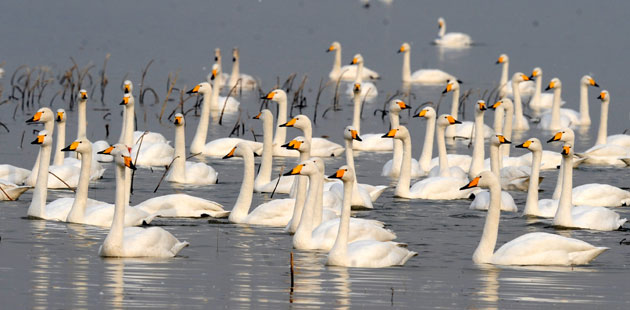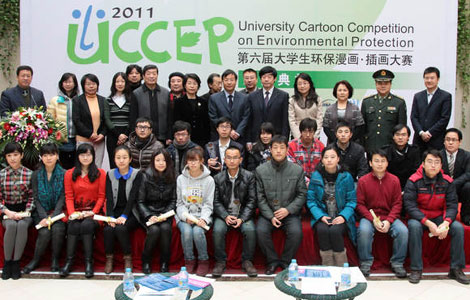Peninsula, finance top talks
Updated: 2011-12-26 17:06
By Li Xiaokun and Zhang Yunbi (China Daily)
|
|||||||||||
Wen, Noda cite common interests as Japan looks to buy yuan bonds
BEIJING - A stable Korean Peninsula is in the interests of both China and Japan, prime ministers of both countries said on Sunday, amid signs of political and financial cooperation as Japan seeks to buy Chinese government bonds.
The determination expressed by the two leaders on the peninsula issue is "an achievement" as the death of the Democratic People's Republic of Korea (DPRK) leader Kim Jong-il created uncertainty in Northeast Asia, experts said.
Premier Wen Jiabao and his Japanese counterpart Yoshihiko Noda made the call for stability during talks at the Great Hall of the People.
Noda kicked off his overnight China visit on Sunday noon, making him the first foreign leader to visit China after Kim's death was announced on Dec 19. This is also Noda's first official visit to China since he came to power in September.
"Kim Jong-il passed away, so we are currently facing a new situation in East Asia," Noda told Wen at the start of the talks.
Japanese media said Kim's death had shifted Noda's focus from various disputes in relations with China, including territorial disputes in the East China Sea, to the situation in the DPRK.
"Both sides believe maintaining peace and stability on the Korean Peninsula is in line with the common interests of all relevant parties," the Ministry of Foreign Affairs said in a press release after the meeting.
The statement said Beijing and Tokyo hope relevant parties will continue efforts for an early restart of the Six-Party Talks.
The talks, which also involve the DPRK, the Republic of Korea (ROK), the US and Russia, focused on Pyongyang's nuclear program. The DPRK pulled out of the talks in 2009.
Liu Jiangyong, an expert on Japan studies at Tsinghua University, said Japanese leaders rarely travel in times of major international events, like the demise of Kim.
"But Noda did not delay his visit to China - we can see how much Tokyo wants to hear from Beijing on this issue now."
There have been reports that the DPRK was willing to suspend its uranium enrichment program in return for food aid from Washington.
Japan, having no diplomatic ties with the DPRK, can do little other than support China's engagement with Pyongyang, Takehiko Yamamoto, professor at Waseda University, said.
"You might call it an achievement if Japan and China confirm their joint resolve to work together to protect peace and stability in Northeast Asia including on the Korean Peninsula," he said.
Economic ties
The Japanese government's application to invest in Chinese government bonds is being processed, the People's Bank of China, the central bank, said in a statement on its website on Sunday night.
The investment will be "the first time for a developed economy to buy yuan-denominated assets with its foreign reserves", Lu Zhengwei, chief economist with Industrial Bank Co Ltd, said.
"It is significant for the yuan's internationalization as it is turning from a trade settlement currency to a reserve unit," Lu said.
But Yutaka Yokoi, press secretary of the Japanese Foreign Ministry, said that the two sides did not discuss details of the bond deal on Sunday.
The central bank statement also said both countries will promote the use of local currencies in trade and China will encourage Japanese investors to invest in China using the yuan.
Also at the leaders' meeting, Japan and China agreed to press ahead with talks on a free trade pact that also includes the ROK.
The announcement builds on an agreement between the three countries last month to seek a trilateral investment treaty and finish studies on a free trade agreement this year so that they could start formal negotiations on the trade pact.
Li Xiang contributed to this story.
- Daily report on PM 2.5 density soon
- Peninsula, finance top talks
- China to continue tax-cut efforts
- Weak markets pose fund investment risk
- New niche market: Affordable smartphones
- China launches super-speed test train
- PBOC urges less reliance on foreign credit ratings
- Group-buying firms look to Taobao










